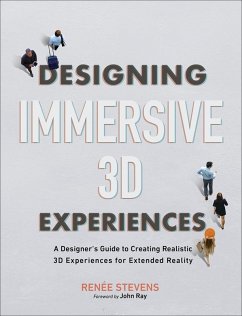
Software and System Development using Virtual Platforms (eBook, ePUB)
Full-System Simulation with Wind River Simics
Versandkostenfrei!
Sofort per Download lieferbar
55,95 €
inkl. MwSt.
Weitere Ausgaben:

PAYBACK Punkte
28 °P sammeln!
Virtual platforms are finding widespread use in both pre- and post-silicon computer software and system development. They reduce time to market, improve system quality, make development more efficient, and enable truly concurrent hardware/software design and bring-up. Virtual platforms increase productivity with unparalleled inspection, configuration, and injection capabilities. In combination with other types of simulators, they provide full-system simulations where computer systems can be tested together with the environment in which they operate. This book is not only about what simulation ...
Virtual platforms are finding widespread use in both pre- and post-silicon computer software and system development. They reduce time to market, improve system quality, make development more efficient, and enable truly concurrent hardware/software design and bring-up. Virtual platforms increase productivity with unparalleled inspection, configuration, and injection capabilities. In combination with other types of simulators, they provide full-system simulations where computer systems can be tested together with the environment in which they operate. This book is not only about what simulation is and why it is important, it will also cover the methods of building and using simulators for computer-based systems. Inside you'll find a comprehensive book about simulation best practice and design patterns, using Simics as its base along with real-life examples to get the most out of your Simics implementation. You'll learn about: Simics architecture, model-driven development, virtual platform modelling, networking, contiguous integration, debugging, reverse execution, simulator integration, workflow optimization, tool automation, and much more. - Distills decades of experience in using and building virtual platforms to help readers realize the full potential of virtual platform simulation - Covers modeling related use-cases including devices, systems, extensions, and fault injection - Explains how simulations can influence software development, debugging, system configuration, networking, and more - Discusses how to build complete full-system simulation systems from a mix of simulators
Dieser Download kann aus rechtlichen Gründen nur mit Rechnungsadresse in A, B, BG, CY, CZ, D, DK, EW, E, FIN, F, GR, HR, H, IRL, I, LT, L, LR, M, NL, PL, P, R, S, SLO, SK ausgeliefert werden.













